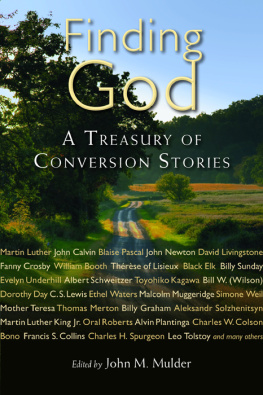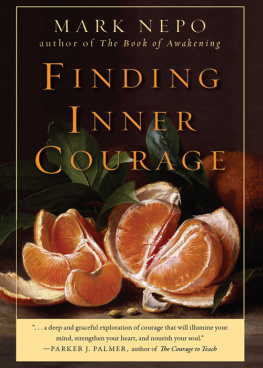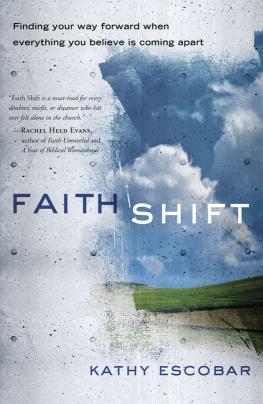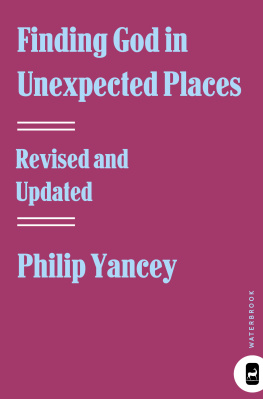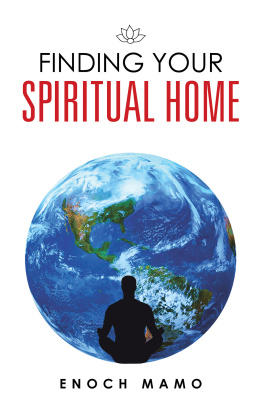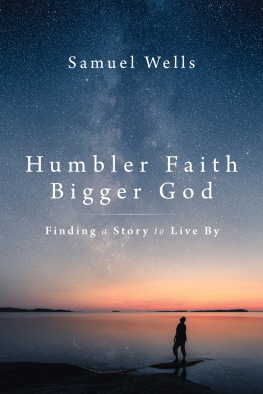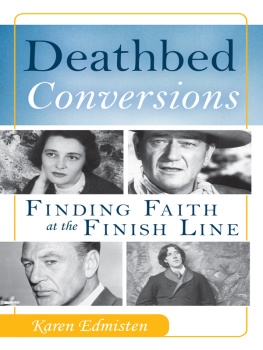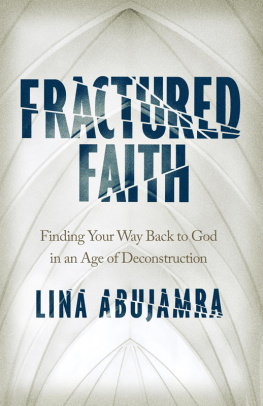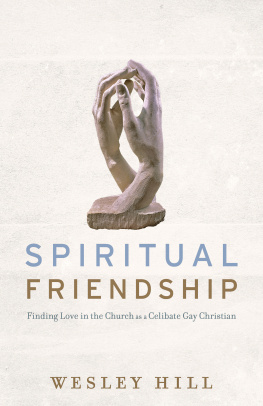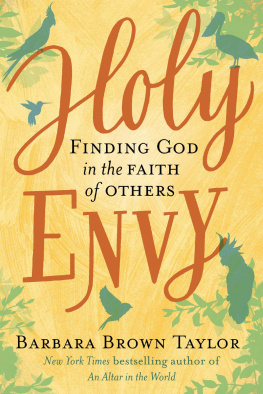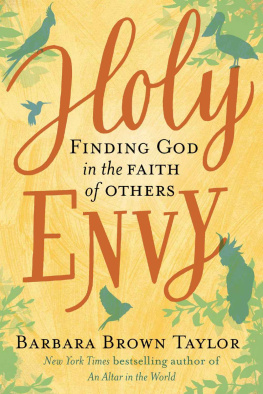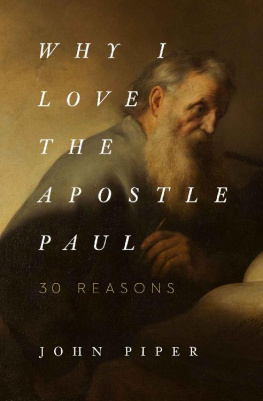A first-rate anthology with excellent commentary! From the Apostle Paul to Bono of U2 and from John Calvin to contemporary Latin American Pentecostals, Finding God is a moving account of the ways in which Christians across the centuries have described their experiences of spiritual renewal and regeneration.
JAMES H. MOORHEAD
author of Princeton Seminary in American Religion and Culture
Finding God contains powerful narratives that will be of value not only to people of faith but also to social scientists like me whose research interests come again and again to questions about conversion, why it happens, and what it means. Mulders own story, courageously included here as an afterword, is especially to be treasured.
ROBERT WUTHNOW
author of After Heaven: Spirituality in America since the 1950s
Finding God
A TREASURY OF CONVERSION STORIES
Edited by
John M. Mulder
with
Hugh T. Kerr
WILLIAM B. EERDMANS PUBLISHING COMPANY
GRAND RAPIDS, MICHIGAN / CAMBRIDGE, U.K.
2012 John M. Mulder
All rights reserved
Published 2012 by
Wm. B. Eerdmans Publishing Co.
2140 Oak Industrial Drive N.E., Grand Rapids, Michigan 49505 /
P.O. Box 163, Cambridge CB3 9PU U.K.
17 16 15 14 13 12 7 6 5 4 3 2 1
Library of Congress Cataloging-in-Publication Data
Finding God: a treasury of conversion stories /
edited by John M. Mulder with Hugh T. Kerr.
p. cm.
Rev. ed. of: Conversions.
Includes bibliographical references and index.
ISBN 978-0-8028-6575-5 (pbk.: alk. paper)
ISBN 978-1-4674-3577-2 (epub)
1. Christian converts. 2. Conversion Christianity.
I. Mulder, John M., 1946- II. Kerr, Hugh T. (Hugh Thomson), 1909-1992.
III. Conversions.
BV4930.C63 2012
248.240922 dc23
2012022980
www.eerdmans.com
In memory of
Hugh T. Kerr (19091992)
and for
Fred J. Hood, F. Morgan Roberts, and Joyce C. Tucker
Contents
This book is a revision and expansion of Conversions: The Christian Experience, subsequently reprinted under the title Famous Conversions, edited by Hugh T. Kerr and me. Since its publication by Wm. B. Eerdmans nearly thirty years ago, Hugh T. Kerr has died, but because of his tremendous contribution to the first version, this volume retains his name as co-editor.
Finding God: A Treasury of Conversion Stories seeks to accomplish what we could not do before. In the first edition, we sought diligently for the spiritual experiences of women and individuals outside the Western world, but we were only modestly successful. Because of the increased availability of such material, I have attempted to address that imbalance. In addition, this book contains the accounts of several contemporary Christians whose stories were either unavailable or eliminated the first time because of space. All criteria for selection are inevitably subject to criticism and debate, but I hope this selection is richer and will make for especially rewarding reading.
Several institutions have assisted in valuable ways in the preparation of this book, both in its first incarnation and now in a more expansive form. These include the libraries of Hope College, Louisville Presbyterian Theological Seminary, Princeton Theological Seminary, Second Presbyterian Church of Louisville, Southern Baptist Theological Seminary, Western Theological Seminary, and Yale Divinity School.
I also want to record my gratitude for the counsel and advice of several individuals: Allan Anderson, Jonathan Bonk, Joel Carpenter, Henri Gooren, Martin Han, Donald Luidens, Mark Noll, Dana Robert, Dae Young Ryu, Scott Sunquist, Arch Taylor, Grant Wacker, and Deokju Yi. Unfortunately, I could not use all of the many individuals they recommended for inclusion. The leadership at Eerdmans has been extremely helpful in bringing this book to fruition, especially Jon Pott and David Bratt. Linda Bieze and Jenny Hoffman have been patient, understanding, and helpful in dealing with the tangled business of permissions to reprint material and listening to my complaints.
One individual stands out as deserving special appreciation for the assistance he has provided in preparing Finding God: Professor James D. Smith III of Bethel Theological Seminary (San Diego) and the University of San Diego. Jim and I shared lengthy emails and conversations about this book, and his experience in using the first edition in his classes and his knowledge of church history have immeasurably improved this book.
Finding God is dedicated to the memory of Hugh T. Kerr, who was my mentor at Princeton Theological Seminary, where he taught theology for many years. He was the editor of Theology Today for decades, taking it from its infancy to its place as the most widely circulated quarterly journal of theology in the world. With hardly describes Kerrs contribution to this volume, but in a deeper sense it gives me comfort to know that we are still working with one another. He always treated me as his colleague in our work together for more than a decade. He and his wife, Dorothy, became a second set of parents to my wife Mary and me, and our children knew them as Grandma and Grandpa Kerr. We still miss them and the joy they brought to our lives.
Finding God is also dedicated in honor of Fred J. Hood, F. Morgan Roberts, and Joyce C. Tucker. They walked with me on a tortuous path of new life and ministry, and only they know how difficult that path was. To them I owe gratitude that is both indescribable and inexpressible.
My wife Mary, who has walked with me on many paths and who believed in me when I had lost hope, is the rock in my life. As a professor of English composition, she targeted many infelicities of expression and typos, and her critical perspective immeasurably improved the final product.
Both in its preparation and its publication, I hope that in some small way this survey of those who have found God will be a means of recovering what the Apostles Creed means by the communion of the saints. In manifold ways, in different tongues, and in various cultures, they testify to both the restlessness of the human spirit and its home in Gods presence and kindness.
JOHN M. MULDER
The English word conversion suggests the act of turning around, moving from one place to another. The turning process can be physical, spiritual, emotional, theological, or moral. It is this physical-spiritual combination that lies behind the original Hebrew and Greek vocabulary in the Old and New Testaments.
The word conversion does not often appear in the Bible, but certain synonyms such as repentance, regeneration, and being born again occur almost everywhere and with great frequency throughout the Scriptures. The notion of turning can be variously stated, as for example to turn, to return, to turn to, to turn away from, to turn toward, or to turn around. To be converted is like making a U-turn. It is starting at square one again or going back to the drawing board.
Conversion, however it may be described, involves a complete change from one lifestyle to another. It may require abandoning an aimless and unsatisfying perspective in exchange for a new and promising incentive to live a more meaningful life. Sometimes the fact and experience of conversion are related to the search for intellectual truth or the longing for moral purity and goodness. At other times, and these make up the more graphic accounts of dramatic conversions, deep emotional earthquakes erupt out of the past, shatter the present, and make way for a new tomorrow.
I
In the Hebrew Scriptures, conversion is often associated with the divine challenge to the people of Israel to return from their false worship to the true faith of the Holy One, the God of Abraham, Isaac, and Jacob. Especially in the prophetic literature, the perverse Israelites were confronted by the eloquence of Isaiah, Jeremiah, Ezekiel, and others, who urged them to forsake their idolatry and immorality and to turn toward the merciful God who created them, provided for them, and led them out of bondage into the new life of the promised land.

